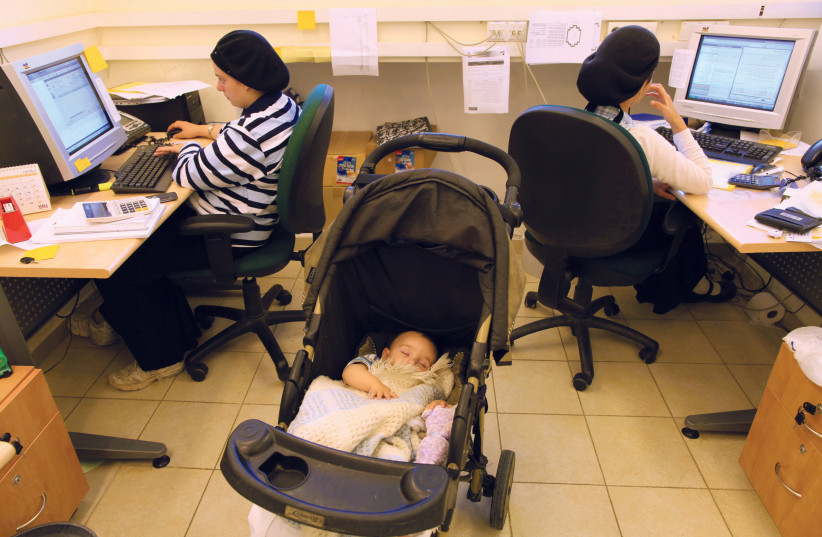Roni Tuval lives in Eilat, about as far as imaginable from Israel’s hi-tech hub. But as a former member of Appleseeds’ technological youth movement Net@, and a graduate of Appleseeds’ Fullstack Bootcamp, Roni has had access to the training, skills and guidance necessary to qualify as a developer and find a job. Today, from Eilat, she works at a hi-tech company based in Tel Aviv.
Roni is proof that in 2022, distance need not inhibit one’s vocational horizons and instead, training and technology can make talent and ability the key determining factors of employment.
Two years of pandemic-induced upheaval have brought into sharp relief dramatic global changes to the world of work. Although these new trends were already emerging, the COVID-19 crisis has acted as a catalyst, challenging both the nature and the geography of our working lives. Even though we were compelled initially to think quickly and creatively about how, where and by whom jobs could be done, it is now time to think more strategically and more proactively about Israel’s greatest resource – its human resource – and how to best prime the labor market of tomorrow.
This challenge is greater than “just” employment. In 2022, it remains the case that around 1.5 million Israelis – the majority of whom and entrenched in the socioeconomic and geographic periphery – lack a connection to the Internet. A quarter of citizens over 20 do not have a home computer. Fewer than 50% of Israelis access online government services.
While 9% of Israelis work in hi-tech, only 3% of them are from the haredi community, just 2% are Arab, and only 30% are women. Israel’s tech industries are also found in a relatively small area in the center of the country.

Urban studies theoretician Richard Florida would claim that this is due to a qualified “creative class” choosing to gather in specific areas, concentrating high levels economic development in one place. However, as a consequence, the influential and affluent Israeli hi-tech industry is neither representative of society as a whole nor accessible to all its myriad faces.
The shift to remote and hybrid working models necessitated by the pandemic have fundamentally altered the structure of our working life. Israel’s tech businesses need no longer limit themselves to putting down roots in those few established locations where highly skilled manpower (and more often than not, it is indeed manpower) is to be found. They needn’t remain so geographically and culturally restricted.
Talent can be found from Kiryat Shmona to Eilat, within all of Israel’s various multifaceted populations and this talent need no longer flock to those same places.
In order to mine this rich seam of human resource however, digital and social gaps must be closed. These are challenges of national importance, impacting not only on the agendas of private business and the relevant government ministries, but also on civil society and the third sector – those NGOs active in fields such as employment, closing socioeconomic and geographic gaps, and minority representation and inclusion.
Increased diversity in Israel’s tech market must be generated by strengthening Israel’s human resources; by empowering Israel’s periphery; and by raising the banner of equality, multiculturalism, diversity and inclusion. The brightness of the future of the country lies in its rich human capital being shared throughout the country, rather than packed within a few homogeneous square miles
How do we do this?
Appleseeds was established with the express goal to close the digital gaps between socioeconomic and geographic groups in Israeli society. Appleseeds has raised the banner of digital equality for the last 22 years, seeking to create opportunities for employment, a digitally literate society, and social and technological access for children and youth.
Our manifesto Vision 2040 lays out how Israeli society must prepare in order to best face the future. It is a vision in which within 10 years, everyone will have high-quality technological infrastructure in their homes. It is a future in which a child’s place of birth will have no impact on their vocational options; in which the fruits of the educational and employment opportunities afforded by technology will be enjoyed by the diverse mosaic of Israeli society.
Bridging this digital divide will help reduce social rifts and polarization, and contribute to a shared discourse which is cohesive, yet respectful of difference.
Reducing the digital divide must be a national priority. This demands systemic, communal and cohesive action to bring about the structural change necessary for a better future.
The writer is CEO of Appleseeds.
